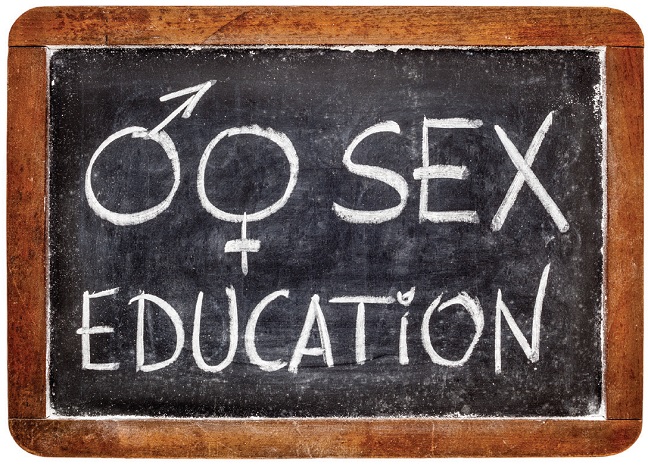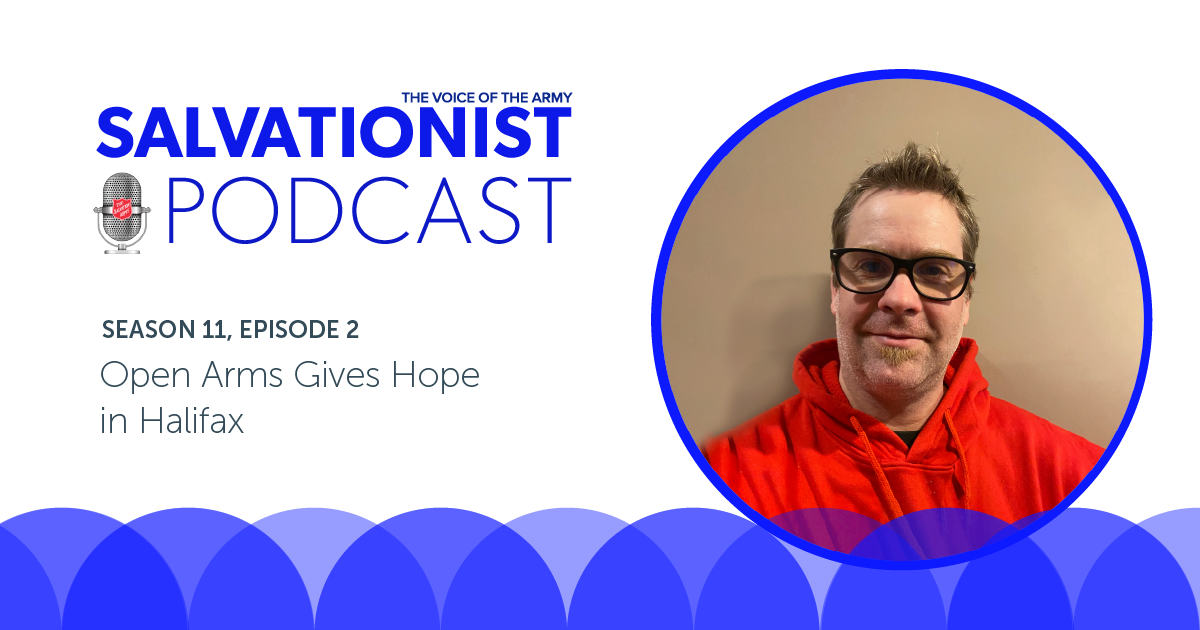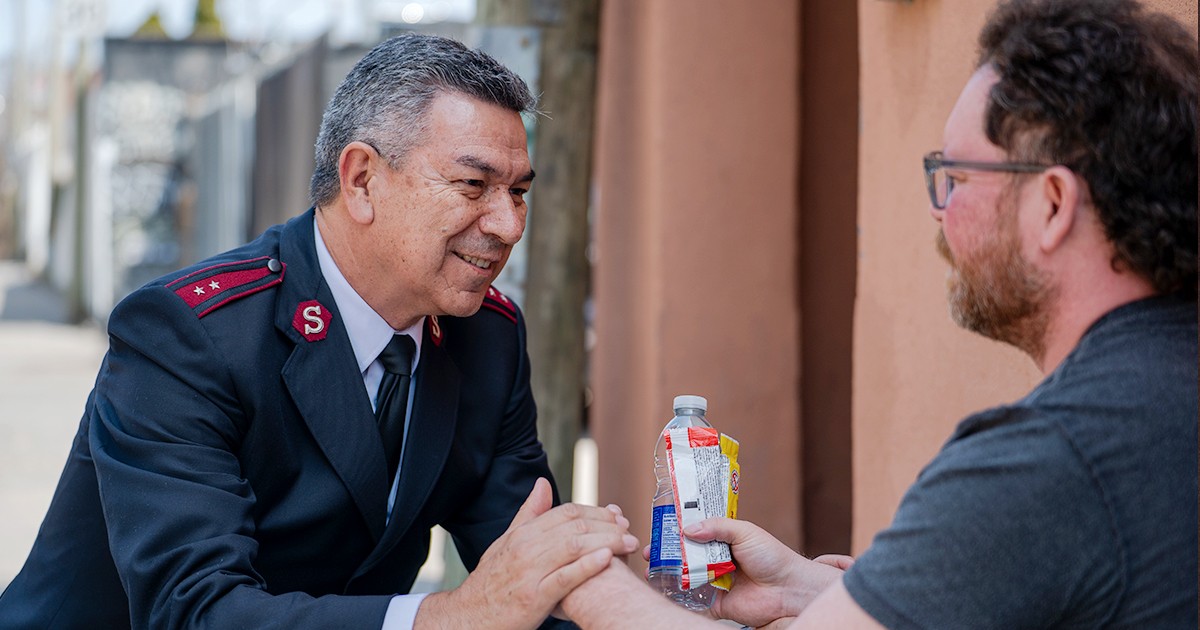"How do babies get inside a lady's tummy?” My mom was unfazed by my question. She sat me down, drew the female and male anatomies, and showed how they fit together. She explained everything carefully—the whole kit and caboodle. I was just 10 years old, but she thought I was ready to understand.
What my mom didn't know was why I was asking. She didn't know that the boy across the street knew all about sex and regaled us with his knowledge, or that when I was six, a boy had tried to get my friend and me into touching and doing what adults do with each other. No way was I going to tell my mom, who I knew would march straight up to that boy's house and raise—well, you know what.
That was the 1960s. Sex education came from kids in the neighbourhood who peeked at their fathers' dirty magazines or found out from older boys. My mom wasn't the norm back then. None of my friends knew, and when I told them what my mom had said we all sat with our jaws hanging open, astonished at the craziness of the whole thing. Many of my friends received their first formal education about sex and reproduction in Grade 8 at school. In high school, many of my friends were sexually active at 15 and 16. Other than the biological facts, my mom's only advice was not to let boys get me into a corner.
With my own children, I answered their questions as I felt was appropriate for their age. Having much more information at my disposal and being from a generation that grew up during the sexual revolution, I taught my children how to keep themselves safe, how to prevent pregnancy and the values that I hoped would keep them as pure as possible for as long as possible. I had an overwhelming need to protect them and felt that giving them too much information too soon would not be wise. I also knew that the more information they had the more chances they had to stay safe. It was a delicate balance.
Fast-forward to 2015. Much of what was a parental responsibility has shifted to the schools. Children have the world at their fingertips with the Internet and television showing sexually explicit movies and videos. Pornography is everywhere, pedophiles wait in chat rooms and sexting happens between kids as young as 10.
Big in the news lately is the Ontario government's new comprehensive health and physical education curriculum for Grades 1-8. There was a similar brouhaha back in the mid-2000s when British Columbia instituted a new curriculum that introduced the reality of homosexuality in Grade 6. Many conservative Christians were up in arms because, to them, homosexuality was wrong and children don't have to know about it so young. They argued that only parents should teach this within the bounds of their religious values.
Ontario has stepped it up a notch. I've read the new curriculum, and it's quite comprehensive. Children in kindergarten will learn the correct names of their body parts, that they are private and how to say no to bad touching. In later grades, students will learn about their changing bodies and sexuality perhaps earlier than ever before, but children are also maturing earlier than ever before.
In Grade 3, teachers will explain that there are many kinds of families in our communities. The reality is that society has normalized same-sex marriages and there will be children at school who come from families with two dads, two moms or even transgendered parents. The curriculum will ensure children are taught tolerance and that all kinds of differences are normal, not just sexuality and gender. I'm not sure this is a bad thing considering Jesus' teaching to love our neighbours as ourselves.
Many religiously conservative families are protesting. They are not happy with this new curriculum and accuse the government of trying to indoctrinate their children with the idea that homosexuality is acceptable, when to them it is not. They feel strongly these topics are not age-appropriate and that it is not the school's responsibility to teach them to their kids. Thankfully, for them, the law provides an option to withdraw their children from classes with inappropriate content—from sex education to Harry Potter books.
Not all Christian families are opposed to the new curriculum and statistics show the majority of parents are in favour of a comprehensive approach to health education. As parents we have an opportunity to review with our kids what they've learned in school. Before, these conversations may have felt awkward, but our children may now be more open to discussing them. It's then we can teach them how to view all of these things through the lens of Jesus and the values he taught.
Major Kathie Chiu grew up in The Salvation Army and has been an officer for 22 years. She has five children, including two teenaged boys still living at home, and eight grandchildren. She is the corps officer at Richmond Community Church, B.C.
What my mom didn't know was why I was asking. She didn't know that the boy across the street knew all about sex and regaled us with his knowledge, or that when I was six, a boy had tried to get my friend and me into touching and doing what adults do with each other. No way was I going to tell my mom, who I knew would march straight up to that boy's house and raise—well, you know what.
That was the 1960s. Sex education came from kids in the neighbourhood who peeked at their fathers' dirty magazines or found out from older boys. My mom wasn't the norm back then. None of my friends knew, and when I told them what my mom had said we all sat with our jaws hanging open, astonished at the craziness of the whole thing. Many of my friends received their first formal education about sex and reproduction in Grade 8 at school. In high school, many of my friends were sexually active at 15 and 16. Other than the biological facts, my mom's only advice was not to let boys get me into a corner.
With my own children, I answered their questions as I felt was appropriate for their age. Having much more information at my disposal and being from a generation that grew up during the sexual revolution, I taught my children how to keep themselves safe, how to prevent pregnancy and the values that I hoped would keep them as pure as possible for as long as possible. I had an overwhelming need to protect them and felt that giving them too much information too soon would not be wise. I also knew that the more information they had the more chances they had to stay safe. It was a delicate balance.
Fast-forward to 2015. Much of what was a parental responsibility has shifted to the schools. Children have the world at their fingertips with the Internet and television showing sexually explicit movies and videos. Pornography is everywhere, pedophiles wait in chat rooms and sexting happens between kids as young as 10.
Big in the news lately is the Ontario government's new comprehensive health and physical education curriculum for Grades 1-8. There was a similar brouhaha back in the mid-2000s when British Columbia instituted a new curriculum that introduced the reality of homosexuality in Grade 6. Many conservative Christians were up in arms because, to them, homosexuality was wrong and children don't have to know about it so young. They argued that only parents should teach this within the bounds of their religious values.
Ontario has stepped it up a notch. I've read the new curriculum, and it's quite comprehensive. Children in kindergarten will learn the correct names of their body parts, that they are private and how to say no to bad touching. In later grades, students will learn about their changing bodies and sexuality perhaps earlier than ever before, but children are also maturing earlier than ever before.
In Grade 3, teachers will explain that there are many kinds of families in our communities. The reality is that society has normalized same-sex marriages and there will be children at school who come from families with two dads, two moms or even transgendered parents. The curriculum will ensure children are taught tolerance and that all kinds of differences are normal, not just sexuality and gender. I'm not sure this is a bad thing considering Jesus' teaching to love our neighbours as ourselves.
Many religiously conservative families are protesting. They are not happy with this new curriculum and accuse the government of trying to indoctrinate their children with the idea that homosexuality is acceptable, when to them it is not. They feel strongly these topics are not age-appropriate and that it is not the school's responsibility to teach them to their kids. Thankfully, for them, the law provides an option to withdraw their children from classes with inappropriate content—from sex education to Harry Potter books.
Not all Christian families are opposed to the new curriculum and statistics show the majority of parents are in favour of a comprehensive approach to health education. As parents we have an opportunity to review with our kids what they've learned in school. Before, these conversations may have felt awkward, but our children may now be more open to discussing them. It's then we can teach them how to view all of these things through the lens of Jesus and the values he taught.
Major Kathie Chiu grew up in The Salvation Army and has been an officer for 22 years. She has five children, including two teenaged boys still living at home, and eight grandchildren. She is the corps officer at Richmond Community Church, B.C.










Comment
On Friday, May 8, 2015, Alonzo Twyne said:
On Thursday, May 7, 2015, Kathie Chiu said:
On Wednesday, May 6, 2015, Donald Jefcoat said:
The curriculum is not to far off the mark. It addresses much more then sex. Even in the parts of sex ed its very well rounded. Youth who don't have good home education on this subject will be given all the stuff they need to know laid out and presented to them at appropriate intervals.
There are two parties that I feel have a problem with this new curriculum. The first as mentioned are the ones who view that this new curriculum will undermine their beliefs. The second are ones that are afraid that this might lead to some closet doors being opened. The second need to be afraid. When little children learn that they have the right to personal space some times family secrets get exposed. Yep if I had something to hide I would be afraid of this curriculum as well.
The first group though I have found are following a leader. I am not gay. I work with people who are homosexual and sometimes we socialize after work. I personally do not share their lifestyle. But I dont use their sexual identity against them. I wont quit my job because my company has hired a homosexual. There was this belief a hundred years ago that such lifestyles might be contagious. So we were advised to have nothing to do with them. Let me say that this curriculum might just break that belief. Just because one associates with a homosexual does not mean that some germ will jump off them and land on you and well you know. Also educating people on various gender or sexual identities wont make them become one. In my day we were taught a bit more open that most people were Hetero the others were Homosexual. Well no we have more insight into how people function. We have LGBTQ and Asexual orientations, we have male, female, trans, nonconforming, neutral, etc in gender identity, Old school thinking thought if you have a penis you are male, and if you have a vagina you are female. Modern thinking is genitals do not define who a person is or even if they stand up or sit down to pee. Many of us are not capable of educating our children for today's way of thinking. Dont take that as insulting, even I who is fairly well trained in social world am blown away by all the identities and changes in our world. I encourage each parent, Aunt/Uncle, Grandparent, youth leader, anyone to take the time to learn the curriculum, do the research, and engage in conversation with the children in your life where and when apropriate.
On Wednesday, May 6, 2015, Kathie Chiu said:
On Wednesday, May 6, 2015, Kathie Chiu said:
On Tuesday, May 5, 2015, Ada Noseworthy said:
Many people will follow the opinion of the last person they talked to. Many will follow what is popular weither it is false or wrong. Many will believe twisted news reports, never checking farther to see if the facts are true. And believe me these days they often are not or only half truths. They are afraid to stand out. They are afraid to be critized.
Now children will be taught to have anal sex. This is against nature and God's word. But people who think so will mostly stay silent.
On Tuesday, May 5, 2015, Katherine said:
On Tuesday, May 5, 2015, Major (Dr.) Beverley Smith said:
Three kinds of tolerance
How then are we to think of other religions? The word that immediately springs to most people's minds is 'tolerance', but they do not always stop to define what they mean by it. It may help if we distinguish between three kinds. The first may be called *legal* tolerance, which ensures that every minority's religious and political rights (usually summarized as the freedom to 'profess, practise and propagate') are adequately protected in law. This is obviously right. Another kind is *social* tolerance, which encourages respect for all persons, whatever views they may hold, and seeks to understand and appreciate their position. This too is a virtue which Christians wish to cultivate; it arises naturally from our recognition that all human beings are God's creation and bear his image, and that we are meant to live together in amity. But what about *intellectual* tolerance, which is the third kind? To cultivate a mind so broad that it can tolerate every opinion, without ever detecting anything in it to reject, is not a virtue; it is the vice of the feeble-minded. It can degenerate into an unprincipled confusion of truth with error and goodness with evil. Christians, who believe that truth and goodness have been revealed in Christ, cannot possibly come to terms with it.
Leave a Comment